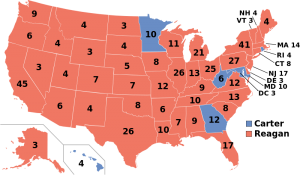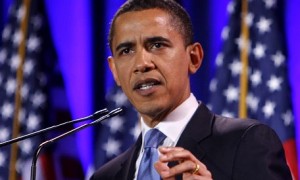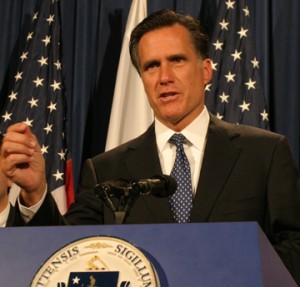One hundred days separate the American voter from the day of decision in the 2012 Presidential election. The weight associated with decisions of such magnitude only slowly begin to pervade the consciousness at the century day mark. Americans are tied to their Presidents – even unpopular Presidents seem to hold on to a veneer of poll support as the election approaches, weighed against their lesser known opponents. The idea of “starting over” is not a comfortable concept with most voters; the tested seems preferable to the untested. The discomfort comes from the simple premise of having to admit an electoral mistake the first time – the pesky recognition that the selection proved to be not quite up to the task of running the the most powerful and complex country on earth. Such determinations are not flippant decisions but rather gut checks that become rational to the voter in the last days before the election.
The hundreds of millions of dollars to be spent by the current candidates in a blizzard of campaign advertising in the next one hundred days will be focused on convincing us of the capacity of each candidate for the job, to the denigration of the other. The more personally negative the campaign typically the weaker foundation of performance of the candidate and the greater concern of the candidate to their own progressive image they have developed in the eyes of the public. This year appears to be entering into just such a phase, and the owner of the negativism appears to be – the President. Struggling to project his “successes” on a wary public digesting a burgeoning public debt, extended recession, and flagging international respect, the President’s talk has turned to the dismantling of his opponent. The President’s caricature of Romney is a man who is too rich to relate to the plight of “folks”, whose Mormonism is “too weird” to reflect the values of the everyman, and who’s determination to reduce the nation’s burgeoning dependence on governmental largess is stealthily racist.
A similar script defined the election of 1980 between President Jimmy Carter and his challenger Ronald Reagan. Carter’s record of performance in office battered by the twin economic peaking headwinds of 15% inflation and 20% interest rates and shackled to immobility by the Iranian hostage crisis, Carter re-directed the focus onto Reagan’s capabilities. Despite a record of innovative and stable governance of the nation’s most productive state, California, Reagan was labeled a dunce, a failed B-movie actor, an extremist, a demagogue, and most tellingly, a warmonger. The polls at the time suggested Carter and his accomplices in the media had marked their target well – a January 1980 Harris poll had Carter leading Reagan a stunning 65-31% and across all voting groups, and Carter continued with a double digit lead into September of that year. Under considerably worse economic trends it appeared the 1980 voting public was comfortable with staying with the known factor Carter against the potentially “unstable” Reagan, regardless of their sense of Carter’s grasp of the nation’s needed course corrections.
The result was stunning reversal of the predicted polling trends. Reagan squashed Carter winning the Electoral College by 489-49 and the popular vote by 10%, with the greatest damage to Carter appearing to come from his own voter base, so called Reagan Democrats who abandoned Carter in the last few weeks of the campaign and latched their hopes on the more positive views of America’s future elicited by Reagan. The foundations of the landslide turned not on the popularity or likability of the two individuals nor their personal proclivities but on the premise Reagan framed so brilliantly in the final debate with Carter:
who abandoned Carter in the last few weeks of the campaign and latched their hopes on the more positive views of America’s future elicited by Reagan. The foundations of the landslide turned not on the popularity or likability of the two individuals nor their personal proclivities but on the premise Reagan framed so brilliantly in the final debate with Carter:
“Are you better off now than you were four years ago? Is it easier for you to go and buy things in the stores than it was four years ago? Is there more or less unemployment in the country than there was four years ago? Is America as respected throughout the world as it was? Do you feel that our security is as safe, that we’re as strong as we were four years ago? And if you answer all of those questions ‘yes’, why then, I think your choice is very obvious as to whom you will vote for. If you don’t agree, if you don’t think that this course that we’ve been on for the last four years is what you would like to see us follow for the next four, then I could suggest another choice that you have.”
The devastating conclusion of the voter was that things could not keeping going the direction they were going, and that they could not continue to be led by the current office holder in the direction he was leading. An election of personalities in the final two weeks became an election based on competence, and the voting public had seen enough of the competence of one to decide to take a chance on the competence of the other.
The elements of the current sense of unease are in my mind similar to the buffeting winds of 1980. The polls suggest a tight election and the electoral college maps still forecast an Obama victory. I believe however the next hundred days, baring some unforeseen calamity, will progressively focus the voter on the logic of the echoes of Reagan’s framing of the above question. Are you better off? Will your children be better off? Will the world be better off?
I believe the question as to four more years of expanded governmental influence on economic decision making, debt proliferation, loss of individual determination, and the permanence of government as central decision maker in our lives will be answered conclusively. Romney 51.5%, Obama 48.5% , Romney 307, Obama 231. The driving force of this year’s election? A voting group heretofore not known – the Romney Democrat.

